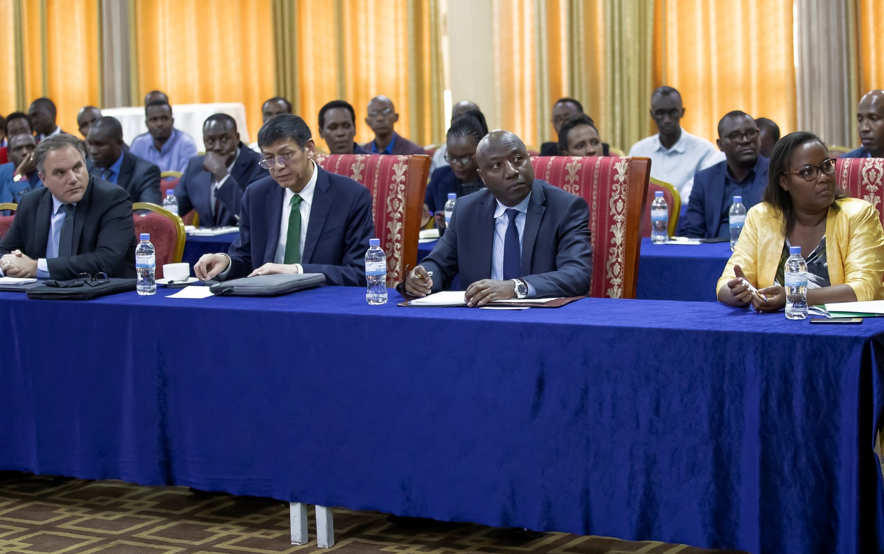Building on its remarkable social and economic progress over the past two decades, Rwanda is now accelerating its agenda for sustainable development and inclusive growth, known as the National Strategy for Transformation, by reinforcing its emphasis on agriculture, nutrition, and rural transformation. To support this effort, IFPRI has partnered with the Ministry of Agriculture and Animal Resources (MINAGRI) in creating the new Rwanda Agricultural Policy Analysis and Capacity Development Program.
The program launched at a Dec. 6 event in Kigali attended by 100 high-level government officials, development partners, other key stakeholders, and the media.
“Agriculture continues to be key in driving growth in Rwanda and is central to achieving [long term development strategy] Vision 2050,” MINAGRI Minister Gerardine Mukeshimana said. “Our partnership with IFPRI through this new program will help realize the immense potential of agriculture to continue to spur growth and reduce poverty.“
The MINAGRI-IFPRI program is a collaborative initiative in policy analysis, capacity development, and knowledge sharing to support Rwanda’s 2018–2024 Strategic Plan for Agricultural Transformation (PSTA IV). The program will focus on policy and investment options to increase agricultural productivity, improve nutrition, strengthen food systems and the rural nonfarm economy, and foster broad-based economic growth and development throughout the country.
In his keynote address, Rwanda Prime Minister Edouard Ngirente, a Compact2025 leadership council member, emphasized the need for deep analytical support for the PSTA IV and the country’s broader vision for growth, development, and prosperity. His remarks echoed those of IFPRI Director General Shenggen Fan, who shared his appreciation for Rwanda’s vision and its commitment to evidence-based policy solutions.
“The Rwanda Agricultural Policy Analysis and Capacity Development Program is an exciting opportunity for IFPRI to engage closely with MINAGRI and the wider community of scholars and analysts, as well as the very people steeped in the ground realities of agriculture, nutrition, and rural transformation throughout Rwanda,” said IFPRI Senior Research Fellow David Spielman, head of the new program.
Christopher Rue is a Senior Program Manager with IFPRI’s Director General’s Office.







